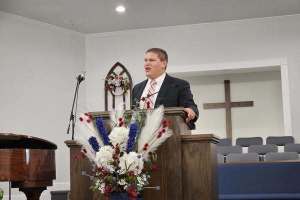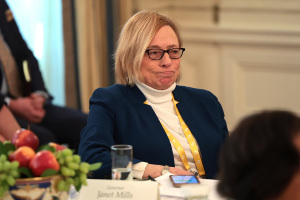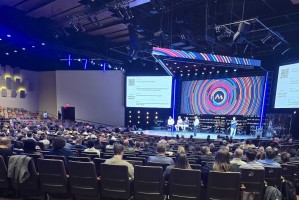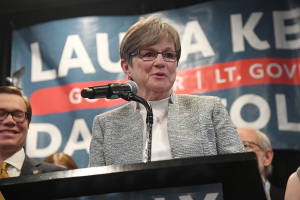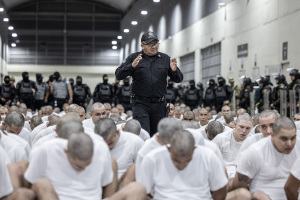Mike Huckabee warns against unending church closures: 'They better have a reason that's overwhelming'
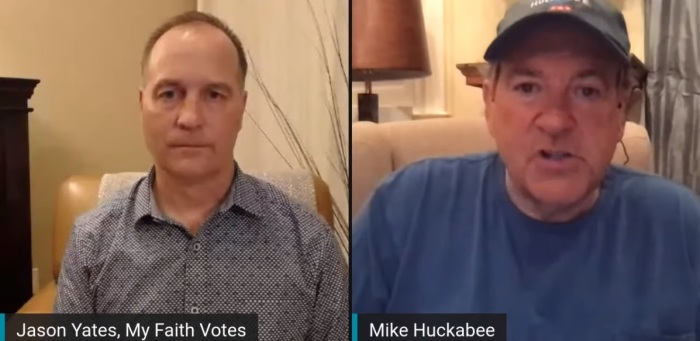
Former Arkansas Gov. Mike Huckabee has denounced the idea that state and local governments can continue to force churches not to hold in-person services, especially when a church agrees to engage in social distancing practices.
Huckabee was interviewed by Jason Yates of the Christian group My Faith Votes, which Huckabee serves as honorary national chairman, as part of an online town hall Tuesday evening.
Ahead of the program people submitted questions to be answered during the town hall, with some of the submissions being asked by Yates to Huckabee.
Huckabee addressed the need for people to return to daily routines, such as work and going to church, especially as the shutdown orders begin to be lifted in May.
“We can’t have people saying you can go to a drive-in liquor store, but you can’t do a drive-in church service,” he added, referencing multiple legal controversies on that issue.
“We should very much be concerned,” Huckabee stressed. “It’s one thing for us to have a period of weeks in which churches voluntarily do their services online or in the parking lot or the drive-in.”
“But we don’t want a government that can say to a church, ‘We are suspending the First Amendment.’ The very first right in the First Amendment is freedom of religion, followed by freedom of speech and freedom of assembly.”
Huckabee said that for the government “to say that those have been suspended, they better have a reason that’s overwhelming.”
“When the mayors of places like Greenville, Mississippi, and Louisville, Kentucky, started sending police officers to give tickets to people in their cars for $500 for attending a drive-in service, this is the first wave of when government says, ‘Hey, these people went along pretty willingly. The next time we have an issue and we want to make a church conform to something that’s politically correct, we’ll just tell them they can’t meet.’”
Huckabee said Americans should never “get used to this idea that the government can tell us when we can gather, what we can say, and how we can get around it.”
When Yates asked what people can do about local or state orders banning all in-person worship services, Huckabee responded by urging people to contact their elected officials and “use our rights as citizens.”
“Churches are fighting back,” he said, noting examples of congregations that have sued governments over stay-at-orders that hinder their worship services. “We should not be critical of that, we should be grateful.”
When asked whether the economic shutdown was necessary to curb the spread of COVID-19, Huckabee said he believed political leaders made a sensible decision.
“Was it necessary? I think that the people making the decisions saw information that most of us are not going to have access to see,” he responded. “There’s no way they would have done the things they did to shut down virtually the entire economy had they not been genuinely alarmed.”
In response to the spread of the coronavirus, several states have issued orders for people to avoid gatherings of more than 10 people without exempting religious services.
While the vast majority of churches have agreed to halt in-person worship services, some congregations have refused to do so, arguing that such measures violate their religious freedom.
On Monday, U.S. District Court Judge John W. Broomes of the District of Kansas ruled against a state executive order prohibiting worship services with more than 10 people in attendance.
Broomes argued that the temporary restraining order on behalf of two churches and their pastors was justified because they were “likely to prevail on” the claim that the shutdown violated their religious freedom.
“… while these executive orders begin with a broad prohibition against mass gatherings, they proceed to carve out broad exemptions for a host of secular activities, many of which bear similarities to the sort of personal contact that will occur during in-person religious services,” wrote Broomes.
“Plaintiffs have made a substantial showing that development of the current restriction on religious activities shows religious activities were specifically targeted for more onerous restrictions than comparable secular activities."
















